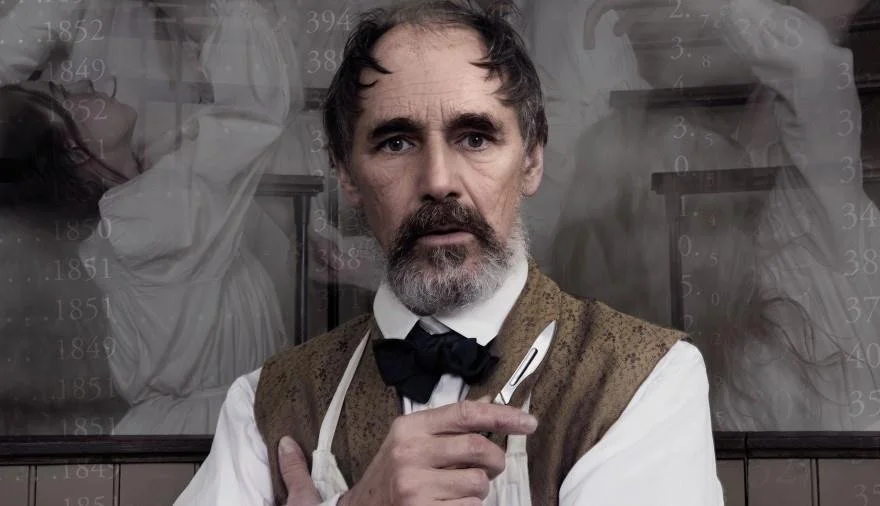Mark Rylance and a company of breathtakingly multi-talented performers tell their disturbing tale with unforgettable eloquence
It is just 172 years this year since Dr Ignaz Semmelweis, a brilliant but conflicted Hungarian Jewish obstetrician working in Vienna, first shared a shocking discovery and made public his passionate exhortation to his colleagues in three words that are currently all too familiar: “Wash your hands!”
Common sense combined with forensic clinical observation led to his conclusion that the puerperal (‘childbed’) fever that led to death by sepsis for thousands of women and babies across Europe was caused by his colleagues going straight from examining the corpses of mothers and babies in the mortuary to the labour ward to deliver infants, without washing their hands.
That this might make for a fascinating drama is self evident. That the story might be told by a company of actor/dancers and the all-female Salomé string quartet of actor/musicians, in a company over half of whom are women, many representing female patients, is the extraordinary imaginative leap made in this stunning theatre production. It is the brainchild of actor and theatremaker Mark Rylance, co-written with writer and dramaturg Stephen Brown.
Rylance’s passionate account of Semmelweis himself is a tour de force. Contemporary descriptions reveal a prickly, difficult genius. Rylance’s disturbingly unpredictable Semmelweis is first seen with his pregnant wife (sympathetic Thalissa Teixeira) and then weighing up the account of a feisty midwife (eloquent Jackie Clune), who dares to flag up that deaths on the ward run by midwives are demonstrably fewer than on that run by medics. He is by turns inspired and sympathetic, tortured and enraged, driven and haunted, even transgressive and violent. His treatment at the hands of his contemptuous seniors makes some sense of his conflicted responses and of his struggle to be heard.
Rylance may be at the centre of the story, yet he is always part of the ensemble around him, a creative among creatives, his shining generosity and intelligence lighting up the stage as always.
Set and costume designer Ti Green creates a brave new world of 19th-century industrial design, an arena of ward and mortuary with a viewing platform above. Her inspiration was to create costumes for ‘The Mothers’ that evoke the delicacy and vulnerability of doomed ballet heroines like Giselle, but with ironic echoes of the glittering world of the Viennese waltz. Choreographer Antonia Franceschi builds brilliantly on these visuals and also includes the beautiful physical presence of the stringed instruments to create a haunting kaleidoscope of eloquent moving pictures.
That hand-washing message, graphically demonstrated onstage with running water by Semmelweis, feels strangely topical. The audience were clearly moved, thrilled and horrified in turn throughout the performance, especially by the unforgettable images of dancers and onstage musicians, and their moving portrayals of the women in labour at the heart of of the story.
By Judi Herman
Photos by Geraint Lewis
Dr Semmelweis runs until Saturday 19 February. 7.30pm, 2.30pm (Thu & Sat only). £9-£48. Bristol Old Vic, BS1 4ED. bristololdvic.org.uk
NB: The production has already been extended after an initial sold-out run, so currently there are some seats to be had.




